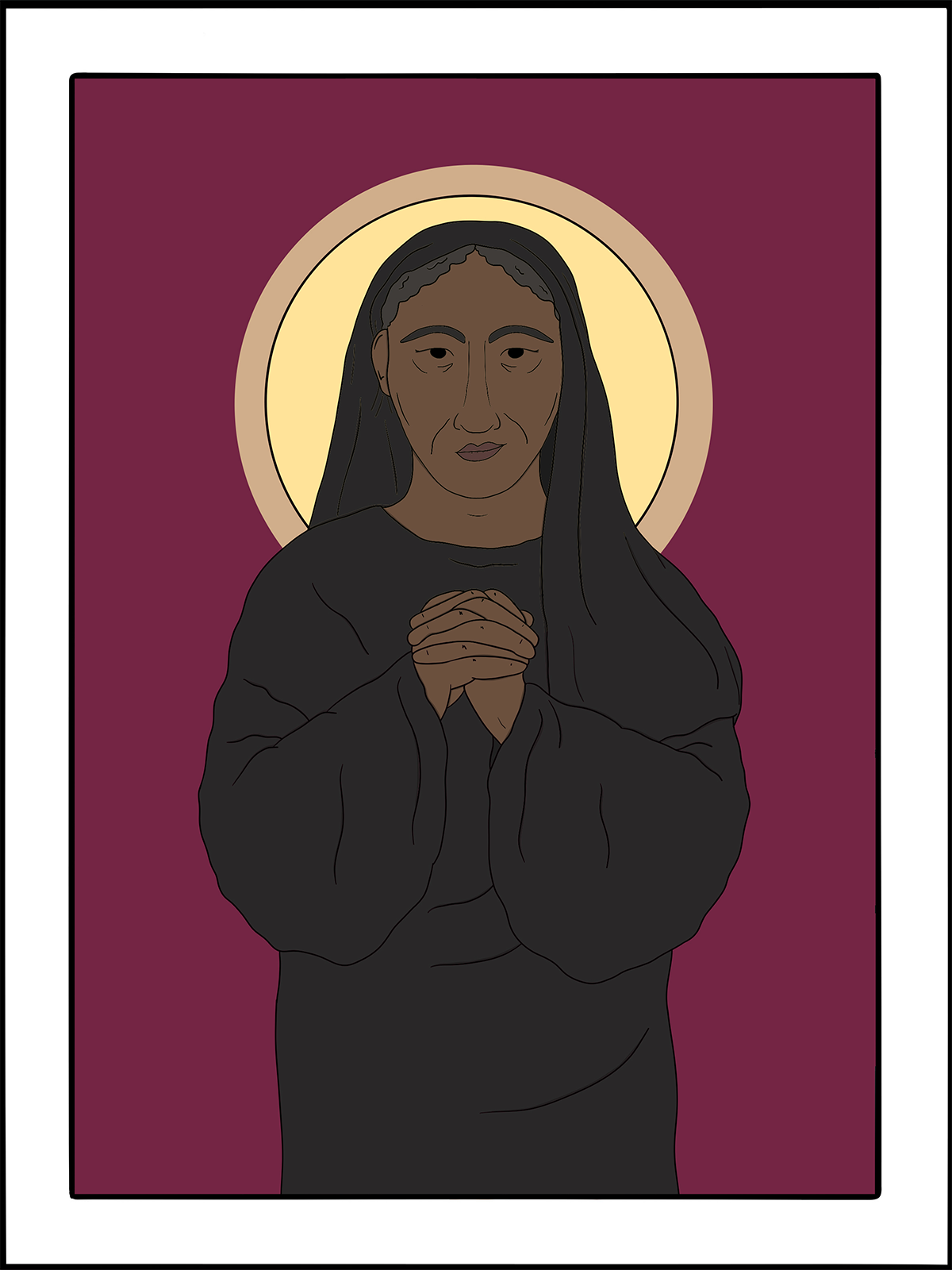
May 4
Monica
Mother of Augustine of Hippo, 387
art by Rev. Kirsten Kohr of Geneva, Ohio Deepen our devotion, O Lord, and use us in accordance with your will; that inspired by the example of your servant Monica, we may bring others to acknowledge Jesus Christ as Savior and Lord; who with you and the Holy Spirit lives and reigns, one God, for ever and ever. Amen.
Monica’s life story is enshrined in the spiritual autobiography of her eldest son, The Confessions of Saint Augustine. Born in North Africa about 331, of Berber parents, Monica was married to a pagan Latinized provincial of Tagaste named Patricius. Early in their marriage, Patricius could be violent and abusive, although over the course of their life together he seems to have worked to improve his temper. In Monica’s earlier years, she was not without worldly ambitions and tastes, and in particular, she struggled with a tendency to drink too much wine—a temptation that she gradually overcame. Over time, she grew in Christian maturity and spiritual insight through an ever-deepening life of prayer.
Her ambition for her gifted son was transformed into a passionate desire for his conversion to Christ. She had longed for all three of her children to be baptized, but her husband insisted that nothing be done until they were adults and could decide for themselves. Augustine took a particularly slow and circuitous path to Christianity, but Monica never gave up hope for his conversion. After his baptism in Milan in 387 by Bishop Ambrose, Augustine and his mother, together with a younger brother, planned to return home to Africa. While awaiting ship at Ostia, the port of Rome, however, Monica fell ill.
Augustine writes, “One day during her illness she had a fainting spell and lost consciousness for a short time. We hurried to her bedside, but she soon regained consciousness and looked up at my brother and me as we stood beside her. With a puzzled look, she asked, ‘Where was I?’ Then, watching us closely as we stood there speechless with grief, she said, ‘You will bury your mother here.’”
Augustine’s brother expressed sorrow, for her sake, that she would die so far from her own country. She said to the two brothers, “It does not matter where you bury my body. Do not let that worry you. All I ask of you is that, wherever you may be, you should remember me at the altar of the Lord.” To the question of whether she was afraid at the thought of leaving her body in an alien land, she replied, “Nothing is far from God, and I need have no fear that he will not know where to find me, when he comes to raise me to life at the end of the world.”
Recent excavations at Ostia have uncovered her original tomb. Her mortal remains, however, were transferred in 1430 to the Church of St. Augustine in Rome.
Excerpted directly from “Lesser Feasts and Fasts 2022,” p. 218-219.

